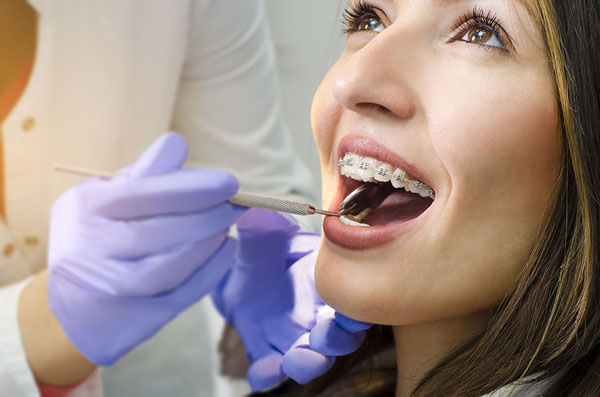Glass Ionomer Sealants
Protect Your Teeth from Cavities!
When it comes to maintaining optimal oral health, preventive measures play a vital role. Among the various types of dental sealants available, glass ionomer dental sealants have gained recognition for their unique properties and long-lasting benefits.
If you’re interested in dental sealants in Dearborn, contact our dentist today by calling our office at (313) 914-4440.
What Are Glass Ionomer Sealants?
Glass ionomer sealants are dental materials designed to safeguard teeth by sealing deep grooves and fissures on chewing surfaces. They’re composed of:
- Glass Powder: The glass powder forms the structural basis of the sealant. It contains various glass particles, which contribute to the material’s strength.
- Polyacrylic Acid: Polyacrylic acid, a water-soluble polymer, acts as the liquid component in the sealant. It facilitates the mixing of the glass powder and provides the material’s adhesive properties.
- Fluoride: Glass ionomer dental sealants contain fluoride, a crucial element in preventing tooth decay. Fluoride is gradually released from the sealant, aiding in enamel remineralization and making teeth more resistant to acid attacks.
What Are Dental Caries?
Dental caries, commonly known as tooth decay or cavities, is a prevalent oral health condition characterized by the demineralization and destruction of the hard tissues of the tooth, primarily the enamel and dentin. Fortunately, sealants aid in dental caries prevention, ensuring you keep your smile beautiful and healthy.
Benefits of Glass Ionomer Sealants
Benefits of this type of dental sealant material include:
- Adhesion to Tooth Structure: Glass ionomer dental sealants can chemically bond to the tooth structure, creating a tight seal. This adhesion helps in preventing the penetration of bacteria and acids into the enamel, reducing the risk of decay.
- Fluoride Release: They have the added benefit of releasing fluoride over time. Fluoride helps in remineralizing the tooth enamel and further strengthens its resistance to decay.
- Versatility: Glass ionomer dental sealants can be used in various dental scenarios. They’re effective on both permanent and primary teeth, making them suitable for individuals of all ages. They can be used as an initial preventive measure or as a restorative solution for small areas of decay.
- Aesthetics: They’re tooth-colored or translucent, allowing them to blend seamlessly with the natural tooth color. This aesthetic advantage makes them an excellent choice for individuals concerned about the appearance of their smile.
- Preventing Dental Decay: The main goal of dental sealants is to prevent the development of tooth decay (dental caries). With an added layer of protection, tooth decay is less likely to occur.
How a Glass Ionomer Sealant is Applied
- Tooth Preparation: The tooth receiving the sealant is thoroughly cleaned and dried to ensure proper adhesion.
- Etching (Optional): In some cases, our dentist may choose to etch the tooth’s surface with a mild acid to enhance the sealant’s bond.
- Sealant Placement: Our dentist applies the glass ionomer sealant material onto the tooth’s fissures and grooves. It’s a liquid at this stage, allowing for easy placement.
- Light Curing: A special curing light is used to harden the sealant, turning it into a solid protective barrier.
Frequently Asked Questions
Are glass ionomer sealants suitable for everyone?
Glass ionomer sealants are generally suitable for individuals of all ages. However, your dentist will evaluate your specific dental condition and determine if they are the most appropriate choice for your situation.
How long do glass ionomer sealants last?
Glass ionomer sealants can last several years, depending on factors such as oral hygiene practices, diet, and the extent of wear. Regular dental check-ups will help monitor the condition of the sealants and determine if any repairs or replacements are needed.
Can glass ionomer sealants be placed on existing dental restorations?
Glass ionomer sealants can be placed on the tooth surface surrounding existing restorations, providing an additional layer of protection. However, they cannot be applied directly on top of fillings or crowns.
Does the application of glass ionomer sealants hurt?
No, applying glass ionomer sealants is a painless and non-invasive procedure. Your dentist will thoroughly clean and dry the tooth before applying the sealant, ensuring your comfort throughout the process.
Schedule Your Consultation Today!
Ready to prevent dental caries from developing and achieve pristine oral health? Contact our Dearborn dentist today to learn more about your dental sealant options! Call our office at (313) 914-4440 to get started.


